Questionmy 5 year old cat has yellow, very smelly stools which can be very loose.she is thin but has a fairly distended belly.she eats all day long if she can but gains no weight.she also passes alot of urine a few times a day even though she does not drink alot of water.her diet at the moment is hills z/d dry and chicken breast.the vet recommended the hills and it does seem to help the stools to form better and on its own they return to a normal dark brown colour but with the chicken in her diet the stools are yellow and smell very bad.she has responded quite well to prednisolone(prednisone?)in the past and metronidazole but my vet is not keen on using medication for too long.rosie had had blood tests for liver and kidney function in the past and they have all been fine.she also had her urine tested recently and no significant infection was found although just a few white cells were present.cancer has been mentioned but doubted due to the situation going on for 3 years.have you treated or had experience with any cats with similar symptoms and do you think it is causing her unecessary suffering keeping her going like this.despite her problems she still has the energy to go outside and climb walls, chase insects, etc.i feel as though my vet didnt give the medication long enough and i dont think diet alone is helping.have you any advice to give me please?
AnswerHi Pamela. I've had several cats with IBD. Z/d is a good diet for these cats. I'm a little baffled about why the vet would suggest adding the chicken breast in, however, since the entire idea of z/d is that these cats cannot digest protein. Z/d takes the proteins and breaks them down into simple amino acids (you will see them listed as "hydrolized chicken", etc.) so that the cat does not have to digest them herself. It makes sense that if Rosie does well on the z/d alone but has trouble when whole chicken is added in, her main issue may be a digestive problem. Hopefully, you will be so lucky, and Rosie's problem can be managed by feeding her z/d alone.
But if she does have IBD, which is a bigger disease caused by an immune response, chances are small the condition will ever be managed by diet alone. These cats almost always need to be on a medication, typically for life, not just a special diet. This is because diet cannot control the inflammatory response that is such a large part of the disease. Some cats do well on an antibiotic with anti-inflammatory properties. This is because an overreaction to bacteria in the gastrointestinal tract may be part of the cause of the disease. Antibiotics such as metronidazole or doxycycline can help keep bacteria under control and also have an anti-inflammatory effect that can benefit IBD patients. Other patients require medications that will slightly suppress the immune system to keep this overreactive immune response under control. The most common medication prescribed is the prednisone that you mentioned, or sometimes dexamethasone. There are other choices such as cyclosporine and chlorambucil, which are generally reserved for cases which do not respond to either of those due to their expense.
I do think that it is necessary to keep her on a medication at this point. A few IBD patients with very mild cases can receive treatment for a few months and then go without treatment for a while, but there is some opinion that these patients are suffering colitis rather than the more chronic IBD. Since your kitty clearly relapses when medication is discontinued, I feel it is definitely a disservice to her to keep her going without a more aggressive treatment plan. IBD patients will die of malnutrition without treatment. If you feel your vet is very reluctant to put her on treatment long-term, I would seek a second opinion.
Best wishes!
Jessica

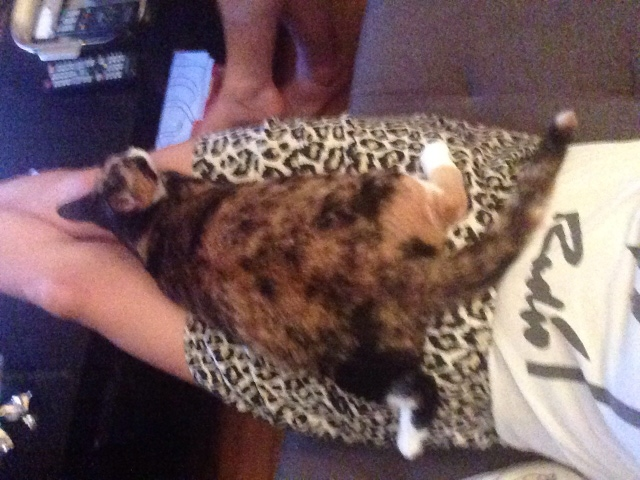 Cat eating too much?
Question
Chickpea
Hello,
Ive attached a photo of
Cat eating too much?
Question
Chickpea
Hello,
Ive attached a photo of
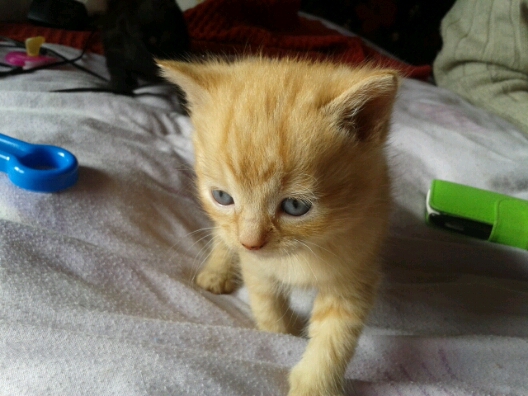 Two Kittens from different litters?
Question
Ginger Female
We wanted to get 2 kitten
Two Kittens from different litters?
Question
Ginger Female
We wanted to get 2 kitten
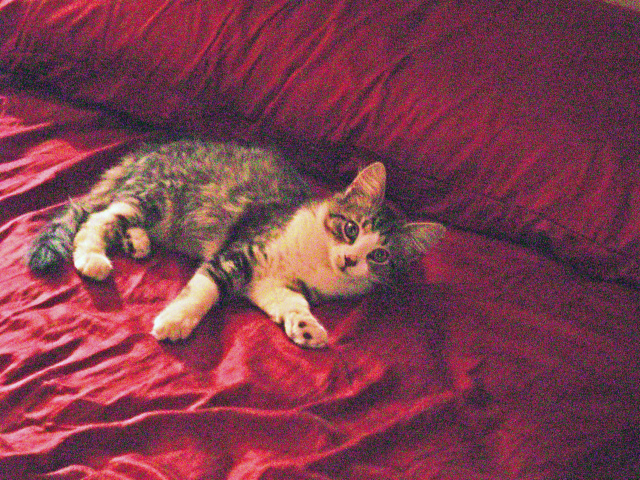 Additional info about the possbile norwegian
Question
Edmund at 4 months
I forgot to mention. Edmund
Additional info about the possbile norwegian
Question
Edmund at 4 months
I forgot to mention. Edmund
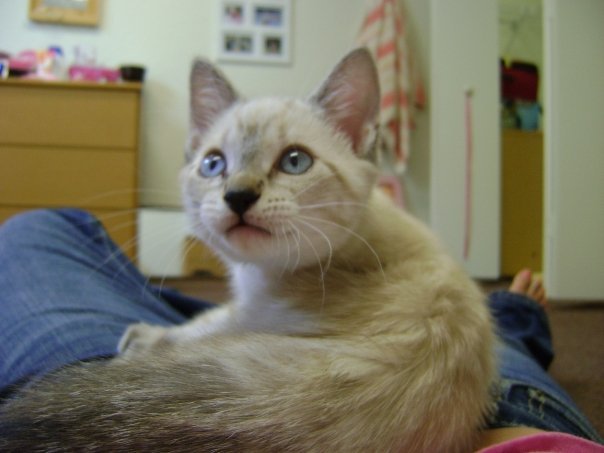 What kind of cat do i have?
Question
Chula
Ive been trying to figure out wha
What kind of cat do i have?
Question
Chula
Ive been trying to figure out wha
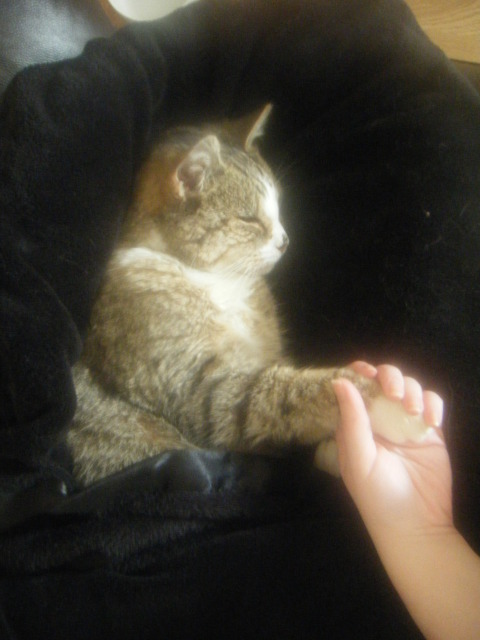 my old cat with no appetite
Question
Timmy since his loss o
Hi, Im really worried a
my old cat with no appetite
Question
Timmy since his loss o
Hi, Im really worried a